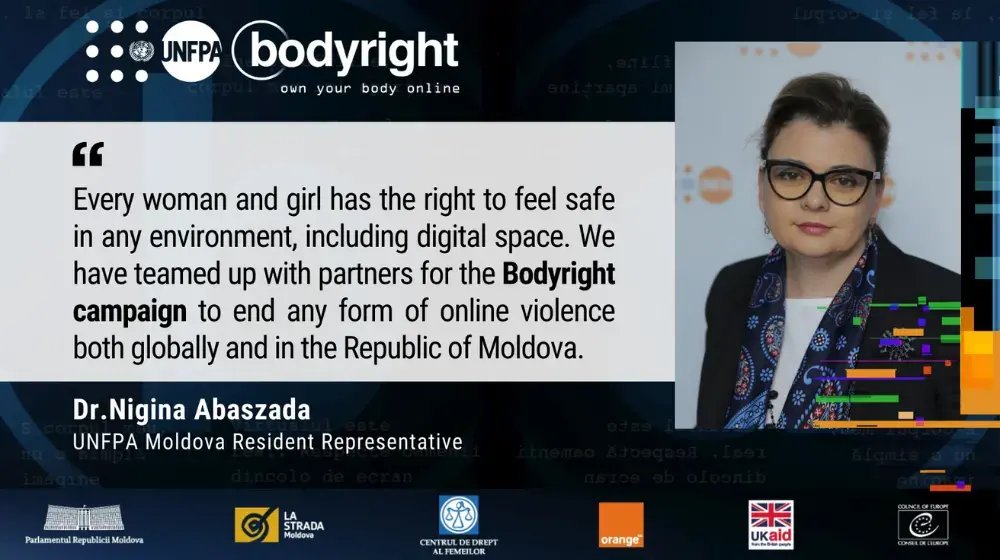Chisinau - The Demographic Research Center in partnership with UNFPA, the United Nations Population Fund in the Republic of Moldova, launched the third Demographic Barometer entitled “The Situation of Young People in the Republic of Moldova: from Desiderata to Opportunities”. The launching took place during the Final Conference of the Academy of Young Workers, organized by the National Youth Council of Moldova.
When presenting the results of the analysis, Mariana Buciuceanu-Vrabie - the author of the analysis, researcher in the Demographic Research Center, declared that the Republic of Moldova registers a high level of social exclusion of young people - about 29% are not enrolled in any form of training or professional development and are not employed, thus, the Republic of Moldova has, in this respect, the worst indicators among the countries in the region. Over 31% of the employed young people have informal jobs. 10.4% of young people work without an individual employment contract.
According to the Barometer, in 2011-2012 the number of young people studying abroad was of 20,538, and this number increased in 2013-2014 up to 24,642. At the same time, over 16% of young people from the Republic of Moldova are working or are in search for a job abroad.
“The mass emigration of young people leads to the quantitative and qualitative losses of human capital. In these conditions, urgent measures are required to improve the situation of young people, to extend their rights and opportunities, especially through priority investment in education, health, jobs”, the author of the Barometer, Mariana Buciuceanu-Vrabie underlined.
In terms of young people’s health, the research shows that the incidence of sexually transmitted infections among young people remains high, 6 out of 10 people infected with sexually transmitted infections in Moldova are aged between 15-29 years. At the same time, about 14% of the new HIV cases registered in 2013 were among people aged between 15-24 years. Statistics show that the number young people with comprehensive knowledge of HIV/AIDS transmission decreased from 40.5% in 2005 to about 32% in 2013.
Natalia Cojohari, the deputy Representative of UNFPA Moldova a.i., emphasized, when talking about statistics on the young people’s health, that the solution for the challenges discussed in the Barometer is the investment in young people through the effective development and implementation of rights-centered policies, including the right to education and quality services in sexual and reproductive health.
“Young people can fulfil their potential and change their future only having access to information, employment opportunities, life skills and knowledge, including in sexual and reproductive health. There is international evidence proving that sexuality education in school, adapted to the young people’s age and needs, is an efficient method of reducing risky behaviours and is not associated with an increase in sexual activity, but has a rather positive effect on the health and quality of life of young people” Natalia Cojohari underlined.
The public discussion about the results of the Barometer focused on the recommendations aimed to enhance the quality of life of young people from the Republic of Moldova, as well as on the solutions aimed to ensure a healthy young generation.
Despite the fact that the Republic of Moldova implements the National Strategy for Youth Sector Development 2020, the limited financing for the planned activities has not ensured yet the achievement of the expected results. The delay of socio-economic and political reforms worsen the situation even more. Therefore, the integration of young people’s problems in the sectoral policies at the stage of their development, but also monitoring the implementation of policies and actions from other fields, such as education, health, labour market, and welfare could become efficient mechanisms to ensure the rights of young people and improve quality of their life.
Increasing the level of young people’s participation to the community life and fostering of civic activism through the local youth structures will secure a place for the youth at the decision table.
The expansion of high quality social and health care services, including in the area of sexual and reproductive health, development of psychological support services (counselling and therapy) and family life education are some of the other important recommendations.
NOTE: “The Situation of Young People in the Republic of Moldova: from Desiderata to Opportunities” is the third research in the series of Demographic Barometers, which was launched in 2015 by the Demographic Research Center in partnership with UNFPA. The Barometers aim at assessing the demographic situation in the areas related to dynamics of population, elderly and young people, as well as at providing policy recommendations focused on human development.




